NGO WORK
World Bank Project Cancelled in a Landmark Victory for Tanzanian Villagers
Published
9 months agoon
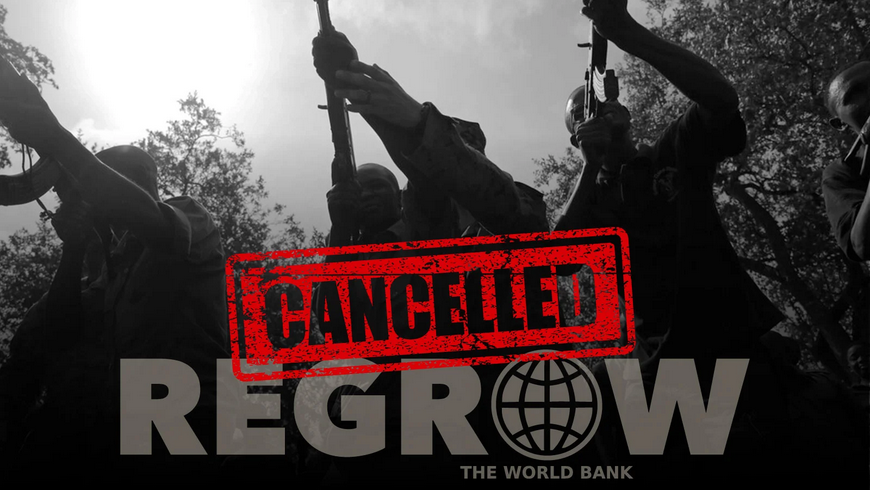
—FOR IMMEDIATE RELEASE—
January 21, 2025; 9:00 AM PST
Media Contact: amittal@oaklandinstitute.org, +1 510-469-5228
- In a major victory for Tanzanian pastoralists and farmers, the World Bank funded REGROW project, which enabled extrajudicial killings, human rights abuses, livelihood restrictions and forced evictions to expand Ruaha National Park (RUNAPA) is cancelled.
- Amidst an ongoing investigation by the independent Inspection Panel, the Bank first suspended the project in April 2024, citing the Tanzanian government’s noncompliance with safeguards for resettlement and grievance mechanisms.
- The cancellation comes after nine United Nations Special Rapporteurs expressed their concerns and demands to the Tanzanian government and the World Bank around forced evictions and human rights abuses linked to the project.
- Over 84,000 people in 28 villages remain at risk of eviction, abuses, and livelihood restrictions. Impacted communities call on the World Bank and the government of Tanzania to cancel the park expansion so they can remain on their lands and reclaim their lives.
Oakland, CA – The World Bank’s US$150 million Resilient Natural Resource Management for Tourism and Growth (REGROW) project in Tanzania is cancelled. The decision came after 16 months of advocacy by the Oakland Institute to hold the Bank accountable for enabling the expansion of RUNAPA and supporting TANAPA, the paramilitary Tanzania National Parks Authority. Its rangers are responsible for egregious human rights abuses, including extrajudicial killings and crippling livelihood restrictions that have terrorized farmer and pastoralist communities in the Mbarali District. The expansion of the Park from one to over two million hectares threatens over 84,000 people.
“This landmark decision is a major victory for the villagers who courageously stood up to stop the project,” said Anuradha Mittal, Executive Director of the Oakland Institute. “Though forced to stop funding the terror it unleashed, the Bank must now urgently address the serious harms it has enabled and respond to the demands of the communities whose lives are on hold.”
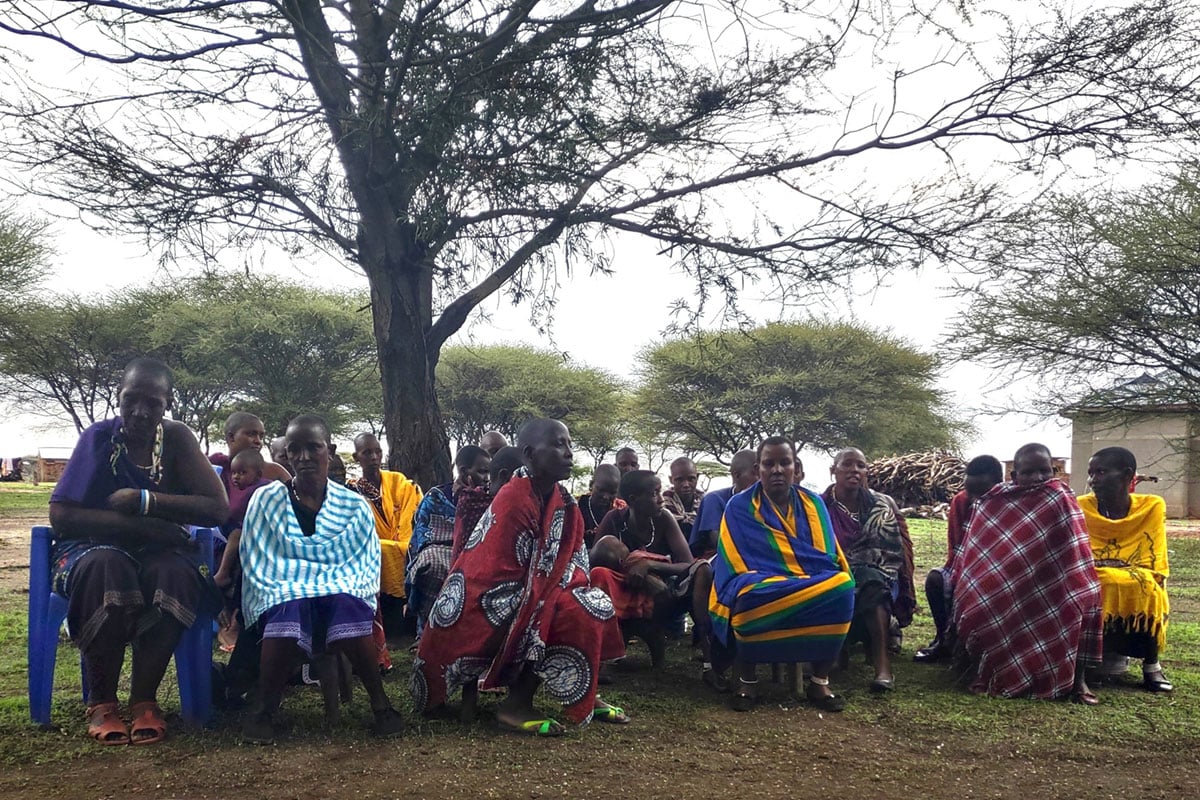
When initially informed of the abuses and violations of its own safeguards in April 2023, the World Bank failed to take action. In June, the Institute filed a request for inspection on behalf of the impacted villagers with the Bank’s Inspection Panel and followed up in September 2023 with a widely covered report, Unaccountable & Complicit.
As a result, the Inspection Panel launched an investigation in November 2023. Amidst the investigation, in a rare move, the World Bank suspended disbursements to the project in April 2024, citing(link is external) the Tanzanian government’s “non-compliance with their Environmental and Social (E&S) obligations… non-compliance related to involuntary resettlement planning activities taking place in RUNAPA,” as well as the absence of a grievance redress mechanism. Continued advocacy led to the project being eventually cancelled in November 2024.
Additional pressure(link is external) to hold the Tanzanian government and the World Bank accountable came from nine United Nations Special Rapporteurs who urged “all necessary interim measures … to prevent any irreparable harm” to affected villagers.
“The initiative of the UN experts is vital given the extent of abuses inflicted by paramilitary rangers on local communities in a country where there is no rule of law,” continued Mittal. “The government and the Bank must be held accountable for the harms caused by their disregard for basic human rights for the sole purpose of increasing tourism revenue,” she concluded.
Impacted communities are demanding the following actions:
- Removal of beacons placed marking the expansion of the park and to officially revert park boundaries to the 1998 borders established by GN 436a.
- Provide comprehensive compensation for damages incurred by livelihood restrictions and violence inflicted by TANAPA rangers, including:
- Value of fines paid by pastoralists to reclaim cattle illegally seized.
- Value of cattle auctioned.
- Compensation for the loss of agricultural production for three seasons (2023, 2024, 2025).
- Compensation for the victims of violence and killings by TANAPA.
- Establish a multistakeholder independent mechanism to oversee reparations.
- Restore social services to villages impacted by GN 754.
- Complete construction on Luhanga Secondary School and provide it with government teachers.
- Reopen Mlonga Primary School that was closed in October 2022.
- Ensure all villages located within GN 754 boundaries are provided with the power, water, and social services they are entitled to like other villages.
“We call on the World Bank to fully assume its responsibility and urgently take these necessary steps to answer our pleas for justice. Our lives are on hold as the threat of eviction looms over us every single day. Our livelihoods have been undermined for years, our children are out of school, our farms sit fallow and our cattle are still being forcibly seized. We cannot continue living like this. The Bank must adequately address our past and ongoing suffering.”
– Statement by impacted villagers in Mbarali, January 2025
Source: oaklandinstitute.org
Related posts:

 URGENT ALERT: Tanzanian Government on a Rampage Against Indigenous People
URGENT ALERT: Tanzanian Government on a Rampage Against Indigenous People
 Justice Denied: East African Court of Justice Grants Tanzanian Government Impunity to Trample Human Rights of the Maasai
Justice Denied: East African Court of Justice Grants Tanzanian Government Impunity to Trample Human Rights of the Maasai
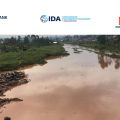 World Bank extends the Lubigi drainage project dispute resolution process for another six months.
World Bank extends the Lubigi drainage project dispute resolution process for another six months.
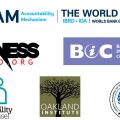 CSOs call for meaningful changes in the World Bank’s Dispute Resolution Service to foster access to justice for project-affected communities.
CSOs call for meaningful changes in the World Bank’s Dispute Resolution Service to foster access to justice for project-affected communities.
You may like
NGO WORK
Failed US-Brokered “Peace” Deal Was Never About Peace in DRC
Published
2 days agoon
October 22, 2025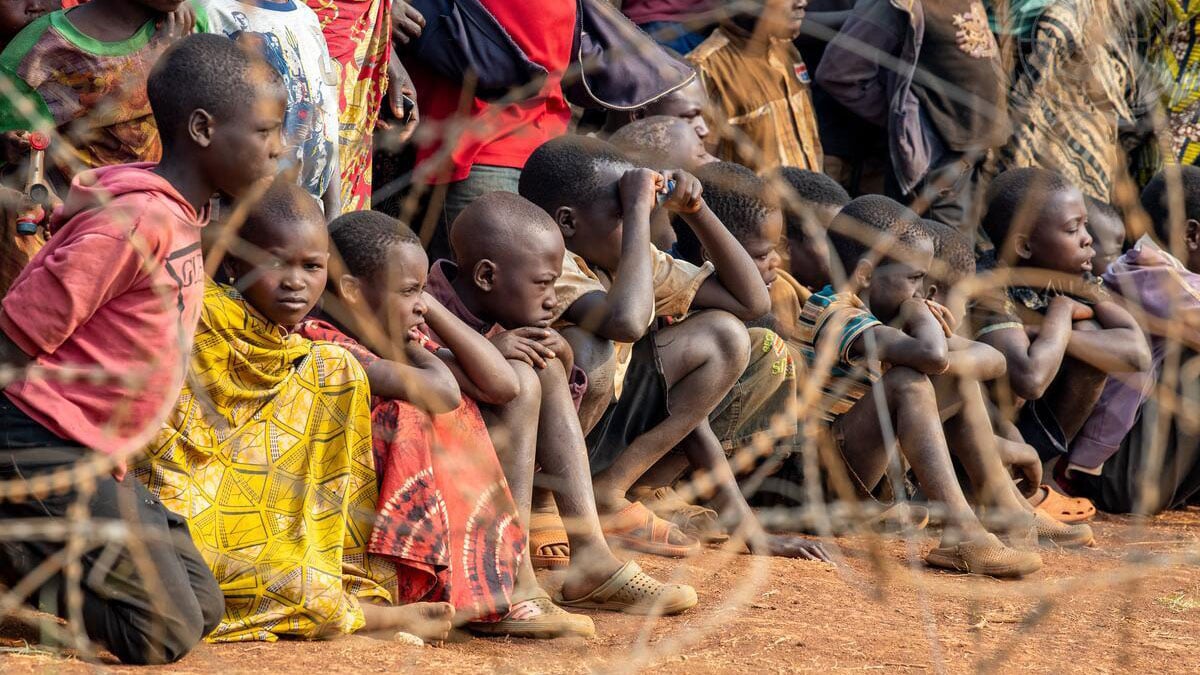
Oakland, CA – Whereas Donald Trump hailed the “peace” agreement between Rwanda and DRC as marking the end of a deadly three-decade war, a new report from the Oakland Institute, Shafted: The Scramble for Critical Minerals in the DRC, exposes it as the latest US maneuver to control Congolese critical minerals.
“US involvement in Congolese affairs has always been unequivocally tied to the goal of securing access to critical minerals,” said Frédéric Mousseau, report co-author and Policy Director at the Oakland Institute. “The ‘peace’ deal comes after decades of US training, advising and sponsoring foreign armies and rebel movements, and at a time when Rwanda and its proxy M23 have expanded territorial control in eastern DRC. This is a win-lose deal that serves US mining interests and rewards Rwanda for decades of pillaging Congolese resources.”
The report’s analysis of previously overlooked coltan trade data shows that the US has been a central actor in laundering illegally smuggled Congolese minerals. Rwanda’s overall tantalum (metallic ore extracted from coltan) exports to the US increased 15-fold between 2013 and 2018. This was after the first M23 invasion in 2012 and at the time when the US administration waived its sanction mechanism against Rwanda. At its peak, over half of US imports of tantalum originated from Rwanda, despite the country’s limited production. Shafted: The Scramble for Critical Minerals in the DRC details how the regional economic integration at the center of the “peace” agreement will legalize this laundering.
“With the world’s largest reserves of critical minerals, the Congolese will continue to bear the social and environmental costs of extraction, while Rwanda reaps the benefits from processing and exporting its neighbor’s resources,” said Andy Currier, report co-author and Policy Analyst at the Oakland Institute. “The deception is even more obvious knowing that Rwanda’s Minister of State for Regional Integration is none other than James Kabarebe – sanctioned by the US Treasury in early 2025 for orchestrating Rwanda’s support for the M23, coordinating the export of minerals from the DRC, and managing the revenue generated by this extraction,” Currier continued.
The report shows that the regional integration negotiated by the US is actually about building two separate export routes for Congolese minerals. One that establishes Rwanda as a hub for minerals extracted in the conflict areas of eastern DRC and another that upgrades the Lobito Corridor, a key export route to the Atlantic Ocean for copper and cobalt mined in the south of the country – financed through a US$553 million loan to Angola by the US Development Finance Corporation (DFC).
Several mining deals along these two routes are already being negotiated by a number of US firms – backed by high-profile billionaires like Bill Gates, close Trump associates, and US military and intelligence figures. “True peace and prosperity will only come when the Congolese – not foreign powers – set the terms of the country’s future,” said Maurice Carney, Executive Director of Friends of the Congo. “Under the US-brokered ‘peace,’ the suffering of the Congolese people persists and a new era of exploitation unfolds.”
With over 1,000 civilians killed in the months since the “peace” deal was signed, Shafted proves that Congolese civil society’s concerns are well founded. American involvement has little to do with ending violence, and everything to do with unlocking strategic mining access for corporate interests. The agreement effectively rewards aggression while sidelining essential conditions for durable peace: Accountability of the perpetrators and their enablers, justice for the victims, and sovereignty of the Congolese people.
Source: oaklandinstitute.org
Related posts:

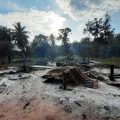 Amidst Failed US Sanctions, the Indigenous Pay the Price for Nicaragua’s Gold Rush
Amidst Failed US Sanctions, the Indigenous Pay the Price for Nicaragua’s Gold Rush
 How the EU-Mercosur trade deal is worsening the international climate crisis
How the EU-Mercosur trade deal is worsening the international climate crisis
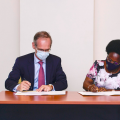 Uganda, Total sign crude oil pipeline deal
Uganda, Total sign crude oil pipeline deal
 Under Guise of Climate Action, the World Bank Launches Fresh Offensive on Land Rights
Under Guise of Climate Action, the World Bank Launches Fresh Offensive on Land Rights
NGO WORK
Documenting killings and disappearances of land and environmental defenders
Published
2 weeks agoon
October 9, 2025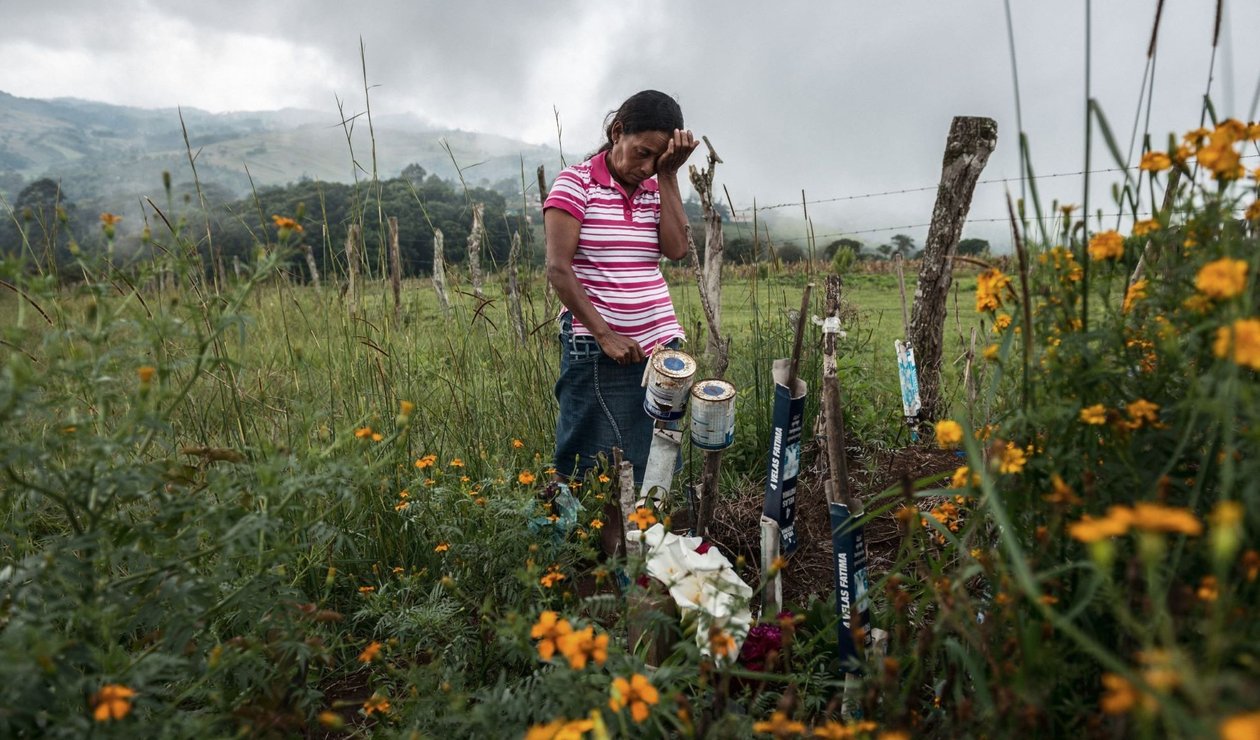
Julia Francisco Martínez stands at the graveside of her husband Juan, a Honduran Indigenous defender who was found murdered in 2015. Giles Clarke / Global Witness
Every year, Global Witness works with partners to gather evidence, verify and document every time a land and environmental defender is killed or disappeared. Our methodology follows robust criteria, yet undocumented cases pose challenges when it comes to analysing data
Global Witness documents killings and long-term disappearances of land and environmental defenders globally. In partnership with over 30 local, national and regional organisations in more than 20 countries, we produce an annual report containing these figures, and we have done so since 2012.
Our methodology involves a year-long process of cross-referencing data from different sources to ensure its credibility. Over 2,200 killings or long-term disappearances of defenders appear in our database since 2012 – with 146 cases documented in 2024.
Every year, we maintain a database to keep a record of these crimes and create a comprehensive global picture of the systematic violence defenders face.
The data provides a snapshot of the underlying drivers behind reprisals and indicates how some defenders and their communities face increased risks. Exposing these trends is the first of many steps to ensure that defenders and their communities are protected and can exercise their rights without fearing for their lives.
Killings and disappearances documented between 2012 and 2024
-
2,253
defenders have been killed or disappeared since 2012
Global Witness
-
146
of these attacks occurred in 2024
Global Witness
Classifying defenders’ cases
Most of the cases recorded in our database are killings – including assassinations by illicit actors, state murder and death in detention.
Our database also includes disappearances of defenders, where the individual has been missing for six months or more.
All reports prior to 2025 have combined killings and long-term disappearances into one single headline figure. For greater clarity, our latest report indicates a distinction between these two types of attack, and our reports will continue to make this distinction in future.
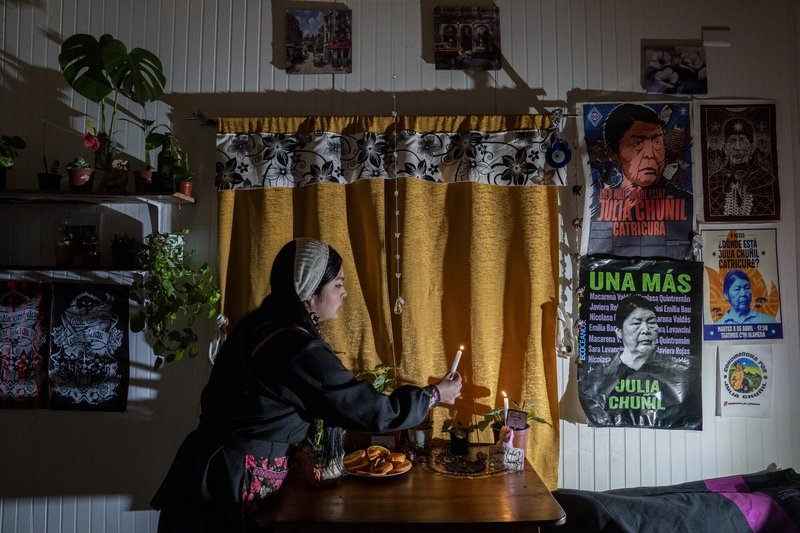
Lissette Chuñil makes a offering to honour her grandmother – a Mapuche woman and president of the Indigenous community of Máfil, who was disappeared in November 2024. Tamara Merino / Global Witness
Cases from prior years or those already included in our database are not continuously monitored. Where we receive updated information on an attack, we may retrospectively include or remove cases.
We document the killing or disappearance of a defender when there is a reasonable and suspected link to an individual’s activism or where the individual played a role in defence of the land or the environment.
As well as individuals directly involved in activism, we also document tangential violence against families, community members or others caught up in attacks.
Our definition covers a broad range of people and encompasses different types of land and environmental leadership. Crucially, this involves people who work in any capacity to protect rights linked to the exploitation of land or the environment.
How we define land and environmental defenders
Land and environmental defenders are a specific type of human rights defender – individuals or groups of people who act to promote, protect or strive for the realisation of human rights through peaceful action.
Their role as human rights protectors is recognised by the UN Declaration on Human Rights Defenders, principles also enshrined in other legally binding international instruments. This includes those working to protect human rights relating to the environment, including water, air, land, flora and fauna.
We define defenders as people who take peaceful action against the unjust, discriminatory, corrupt or damaging exploitation of natural resources or the environment.
Land and environmental struggles take different forms and are shaped by local contexts. For example, in every region of the world, communities strive against systematic land dispossession and environmental destruction from extractive industries.
For some the threat to territories is intimately connected to the degeneration of their sovereignty, culture, livelihoods and homes. Others are caught in wider conflicts which exacerbate land, environmental and climate injustices.
Defenders often live in communities whose land, health and livelihoods are threatened by the operations of mining, logging, agribusiness or other industries.
Some defend our biodiverse environment, while others support such efforts through their roles as lawyers, politicians, park rangers, journalists, or members of campaigns or civil society organisations.
Others are holders of traditional or Indigenous knowledge, working as Indigenous guards or community knowledge keepers.
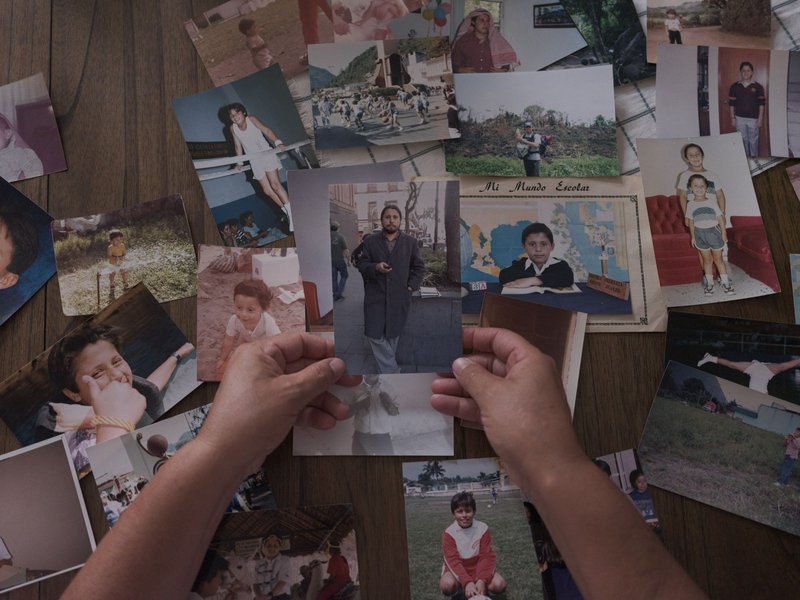
Family members sift through photographs of Ricardo Arturo Lagunes Gasca, a human rights lawyer who disappeared with Indigenous leader Antonio Díaz Valencia after attending a community meeting in San Miguel de Aquila, Mexico. Luis Rojas / Global Witness
Identifying and documenting cases
We learn of killings and disappearances through reliable sources of online reporting, tip-offs and wider documentation efforts from civil society organisations.
We set up search engine alerts using keywords and conduct other searches online to identify relevant cases. We also share information with international and national organisations who report on attacks against human rights defenders.
We then research each case to assess whether the person killed or disappeared was a land and environmental defender, according to our definition.
Desk-based research has its limitations. Many attacks on land and environmental defenders receive little or no media attention, due to the remote location of attacks, stigmatisation by investigating authorities, or widespread government repression of the media.
In most instances, we supplement identified cases with additional research. This includes working closely to share information with trusted civil society organisations and communities who have gathered evidence through their own investigations.
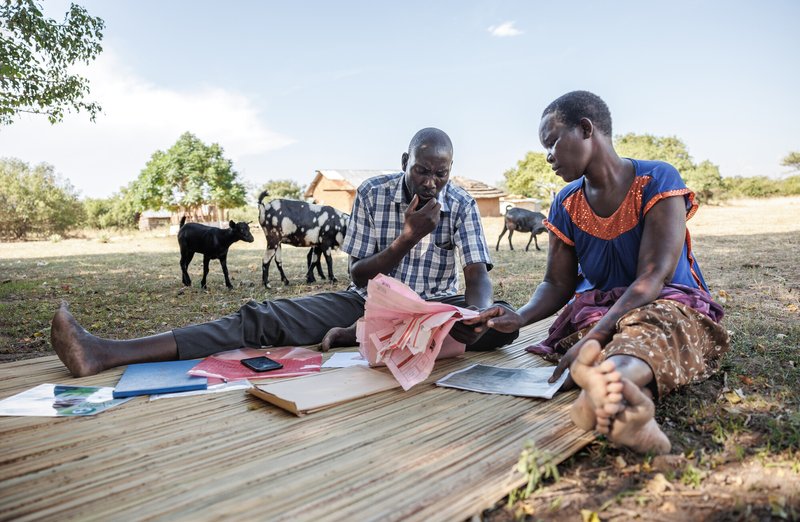
Communities affected by the East African Oil Pipeline report receiving threats after refusing to leave their homes without adequate compensation. Jjumba Martin / Global Witness
Verifying information
We work closely with in-country partners to verify whether there is a reasonable and suspected link between the killing or disappearance and the person’s activism.
Testimony from families, communities and organisations working with targeted defenders often provides key information. Sometimes we review official documentation, including police reports or legal documents. This information is documented by Global Witness and not made public.
Navigating toxic narratives
Year after year, we are confronted with cases where the very nature of what it means to be a land and environmental defender is questioned.
Often governments, corporations and media outlets propagate a narrow view of land and environmental activism, excluding individuals and communities whose role defending land or environmental rights is less recognisable.
Across the world, defenders and their communities are often labelled as “criminals”, “agitators” or “communists”. These toxic terms are sometimes employed by the institutions and authorities that claim to uphold people’s rights.
Media can often repeat damaging narratives or even simply ignore reporting on these cases, making it difficult to verify whether an attack could be linked to a persons’ activism.
In these situations, we work closely with local organisations to clarify the contexts in which defenders work, and the patterns of stigmatisation they face, and gather more evidence of the role they played in environmental and land rights protection.
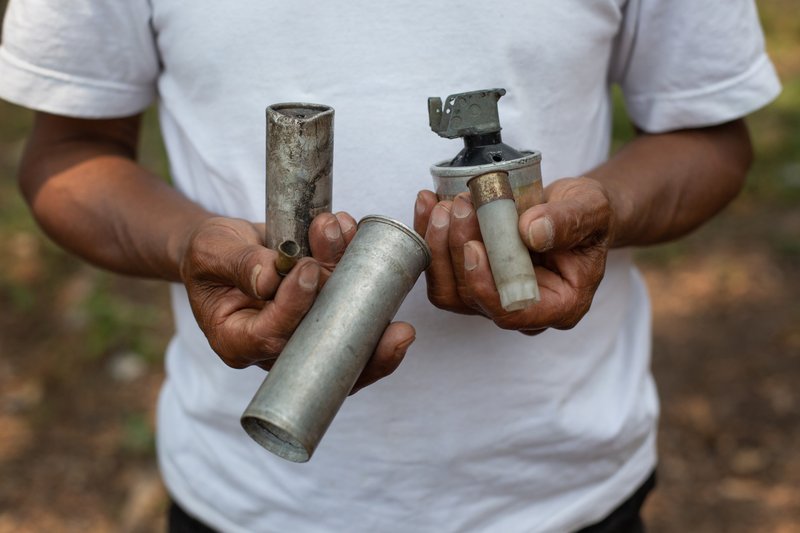
An Indigenous activist holds smoke bombs, tear gas canisters and other projectiles used by Guatemalan state authorities to prevent peaceful protest against a hydro-electric project. James Rodriguez / Global Witness
We also work alongside other organisations gathering national, regional and international reprisal-related data. This includes official UN sources of data collection as well as civil society initiatives.
Every data collection project has its own definitions and methodologies, which create challenges in collating this data into a global dataset on attacks against defenders. Some existing datasets overlap with ours, but often do not fully coincide.
For every case documented, we research and evaluate whether it fits our definition of a land and environmental defender.
Often, public reporting on attacks is circumstantial or lacks information. In some cases, attacks go unreported, particularly in rural areas and in certain countries.
In these cases, countries with restricted civic space – where civil society organisations, NGOs and other groups that monitor the work of defenders are less present, for example – are not able to fill the reporting gap.
This is further exacerbated by repression of the media, authoritarian governments and active political conflicts. Documenting massacres or reprisals in active conflict zones, areas under occupation or where organised crime groups have social or territorial control is also challenging.
These contextual challenges mean that our data is likely to underreport killings and disappearances in certain countries and regions of the world – particularly in areas of Asia, Africa and the Middle East.
Spotlighting our criteria
To meet our criteria, a case must be supported by the following available information:
- Credible sources of information. This can include online publications, official documentation on a case or collating information from families, colleagues and civil society organisations linked to a case.
- Details about the type of act and method of violence, including the date and location.
- Name and biographical information about the victim.
- Clear, proximate and documented connections to the protection and defence of environmental and land rights. This includes evaluating the various roles of defenders play and the wider contexts and underlying conflicts that affect them.
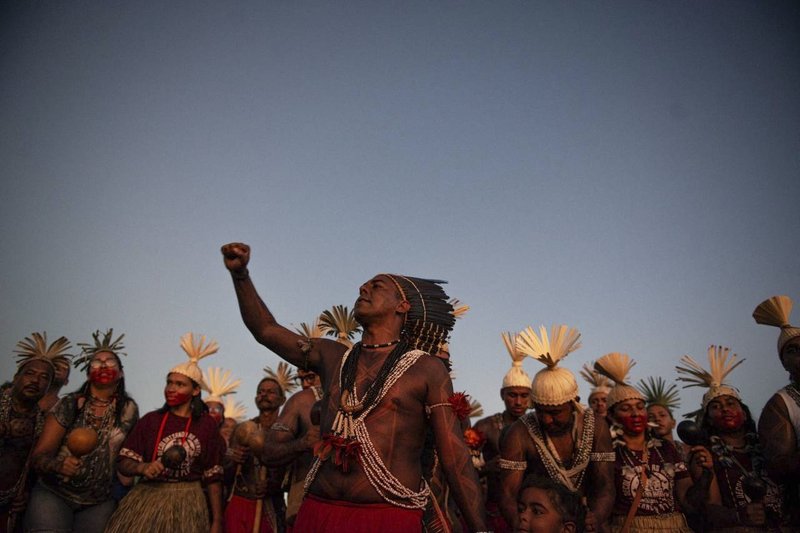
Many of the defenders working to protect land and environment also speak out against the harmful impacts of the climate crisis either because of the direct impact on their livelihoods and communities or in their role as lawyers, journalists or members of civil society organisations. Matheus Alves / Sumauma / Global Witness
Analysing the data
We seek to understand the most dangerous repercussions defenders face in the context of the territorial and environmental disputes taking place in their countries.
We also look to understand the characteristics of defenders and their communities – who they are as people and whether some face greater, more targeted risks.
Focusing on the most serious harms (killings and disappearances) enables us to confidently verify the threats defenders face and allows us to analyse geographical trends at regional, country and local level – though with recognised limitations.
We record whether a defender belongs to a marginalised group – Indigenous Peoples, Afro-descendants or rural communities – or if they act as a defender in their role as lawyers, journalists or members of civil society organisations. This enables us to understand more about the characteristics of defenders working to protect land and the environment.
We try to gather information on the rights defenders are striving to protect, such as whether they are engaged in a territorial dispute or preventing environmental damage.
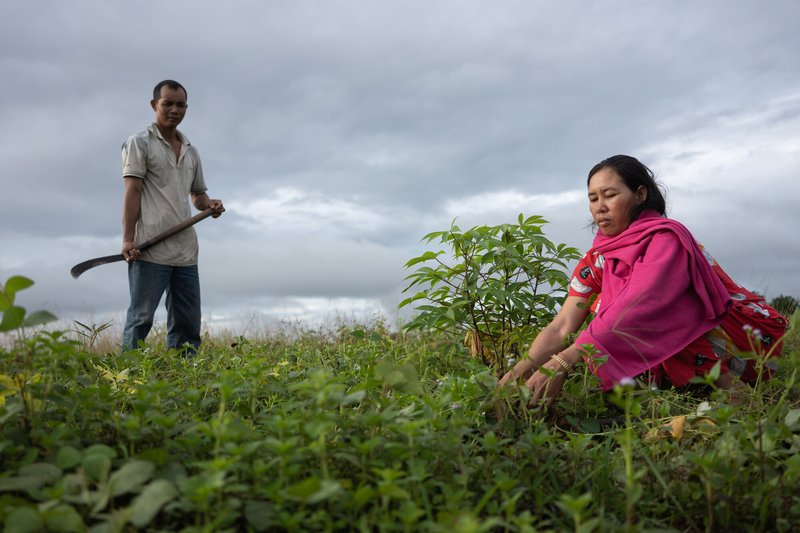
Violence is often connected to wider territorial disputes linked to the expansion of extractive projects, devastating the homes and livelihoods of families and communities. Andrew Ball / Panos / Global Witness
We also aim to identify the underlying driver of the harms that led to their acts of protest – for instance, land disputes or industries linked to destructive practices or rights infringements.
Where possible, we record the alleged perpetrator of the crime – both the direct offender and the suspected intellectual authors.
Our dataset is reviewed and updated annually. Before we publish our data, documented cases from the previous year go through a rigorous fact-checking process to ensure confidence in the veracity of our data.
We do not proactively review historic cases in our database. If there are changes in the status of a case or if more information about an individual defender comes to light, we revise and amend our database accordingly.
In the weeks before the publication of our Annual Defenders Report, we temporarily halt the inclusion of new cases – any new cases or information received are kept on file and later added to the database.
Despite efforts to overcome the data access and verification challenges outlined above, our data is likely incomplete. The figures presented in Global Witness reports are therefore probably an underestimate and should be considered as only a partial picture of the extent of killings and disappearances of land and environmental defenders.
Read full article: globalwitness.org
Related posts:

 Human rights defenders show remarkable courage in the face of attacks and killings – new report
Human rights defenders show remarkable courage in the face of attacks and killings – new report
 #COP27: HUMAN RIGHTS ADVOCATES URGE PARTIES TO INCREASE RECOGNITION AND PROTECTION OF ENVIRONMENTAL AND LAND DEFENDERS.
#COP27: HUMAN RIGHTS ADVOCATES URGE PARTIES TO INCREASE RECOGNITION AND PROTECTION OF ENVIRONMENTAL AND LAND DEFENDERS.
 Toxic platforms, broken planet: How online abuse of land and environmental defenders harms climate action
Toxic platforms, broken planet: How online abuse of land and environmental defenders harms climate action
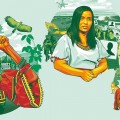 Defending tomorrow: The climate crisis and threats against land and environmental defenders
Defending tomorrow: The climate crisis and threats against land and environmental defenders
NGO WORK
The Oakland Institute Calls on the Tanzanian Presidential Land Commissions to Respect & Ensure Rights of Maasai Living in the Ngorongoro Conservation Area
Published
2 weeks agoon
October 7, 2025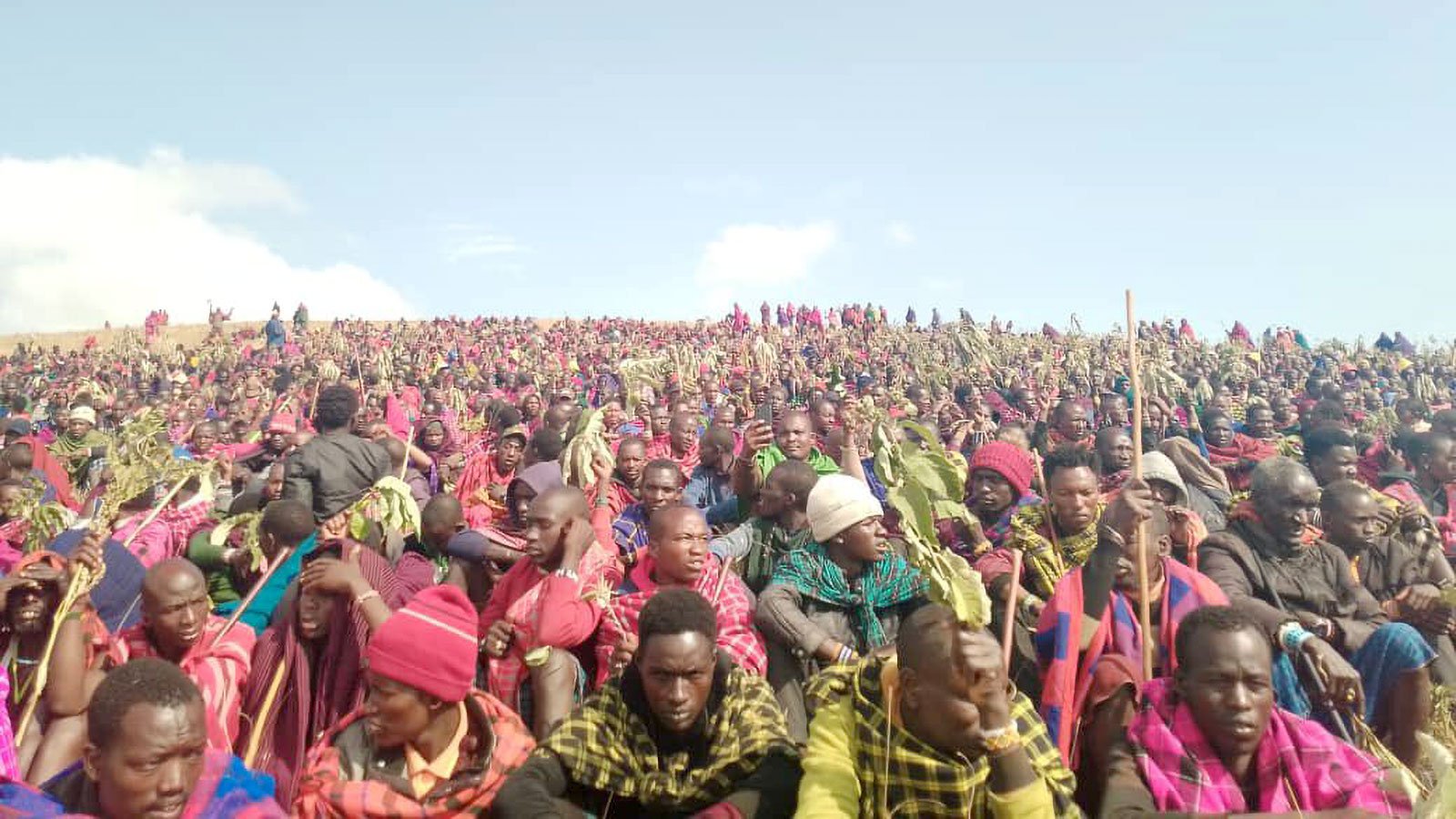
Following the one-year anniversary of the historic protest waged by Maasai communities in the Ngorongoro Conservation Area (NCA), the Oakland Institute calls on the Tanzanian government to respect their rights to land and life and end mass eviction plans.
Between August 18-23, 2024, over 40,000 Maasai staged a historic mobilization, blocking the Ngorongoro-Serengeti highway and stranding safari tourist land cruisers – forcing the world’s attention to their demand for justice. The protest challenged the Tanzanian government’s attempt to drive the Maasai from the NCA without their consent by stripping them of their land and voting rights. President Samia Suluhu Hassan’s blind pursuit of tourism dollars has resulted in denial of essential services – including life-saving healthcare and education – to approximately 100,000 Maasai, while their pastoralist livelihoods are strangled.
To appease the international outcry generated by the protests, the Tanzanian government launched the “Presidential Commission on Land in Ngorongoro” and the “Presidential Commission on Relocation from Ngorongoro,” on February 20, 2025. The commissions were granted a three-month mandate to assess land conflicts and the relocation of residents with the expectation that the findings will be released at regular intervals. More than six months later, not a single report has been published or any information shared.
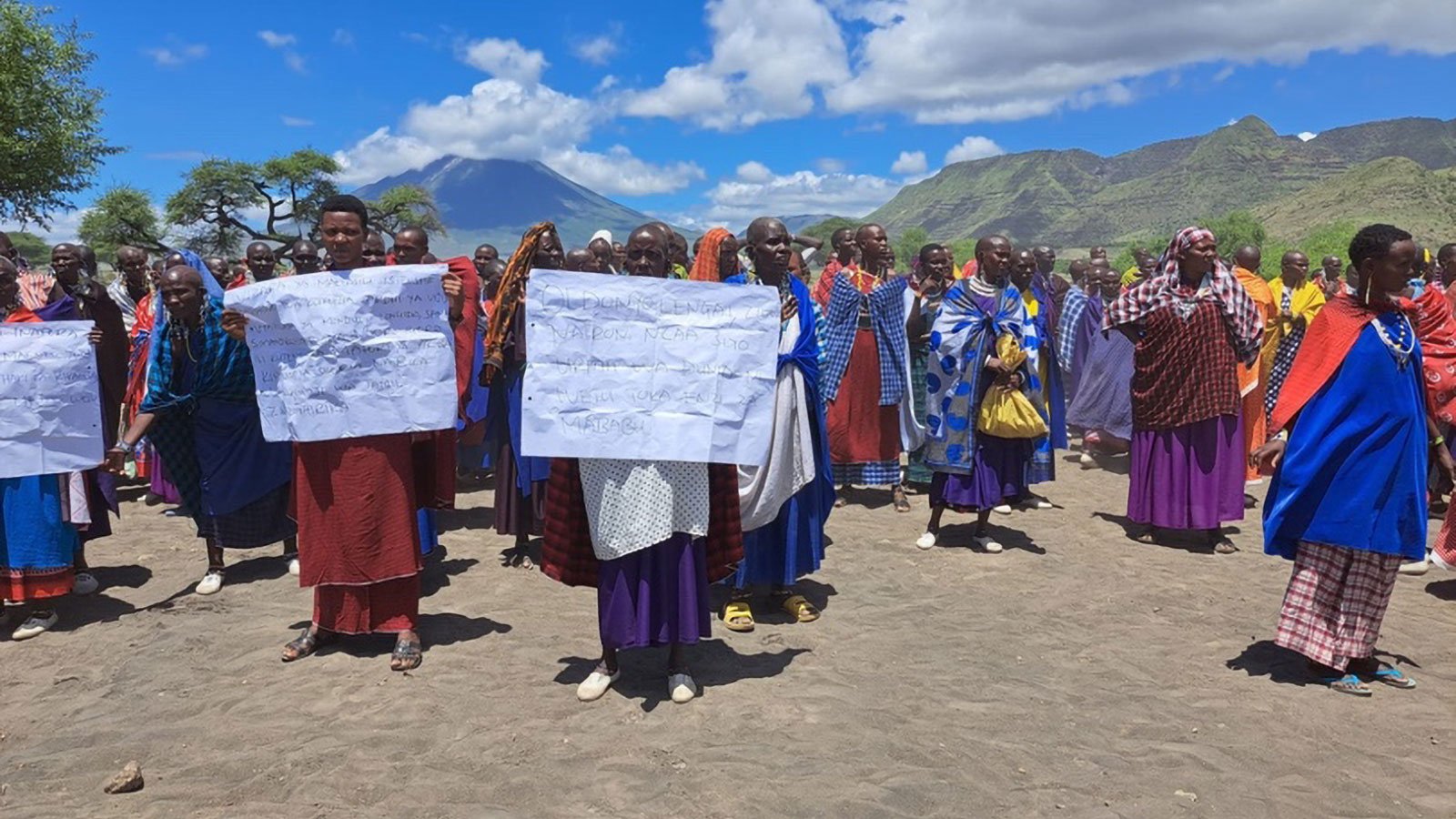
In April 2025, the Indigenous Peoples and Protected Areas Initiative at the University of Arizona’s Indigenous Peoples Law and Policy (IPLP) Program submitted a legal brief to the commissions. Endorsed by the Oakland Institute, Land is Life, and Forest Peoples Programme, the brief called on the Presidential Commissions to uphold the rights of the Maasai to land, culture, self-identification, and Free, Prior and Informed Consent (FPIC) while addressing the devastating impacts that so-called conservation policies have inflicted on these communities. The brief urged the commissions to recognize the Maasai as Indigenous Peoples, guarantee their meaningful participation, and align Tanzania’s laws and policies with its international obligations.
The independence of the commissions remains questionable, with both notably dominated by government personnel and very limited Maasai representation. It is believed that the commissions have already submitted reports, recommending further relocations to the President, who intends to release them after the October general elections.
In a concerning sign, during a July 2025 speech, President Samia Suluhu Hassan condemned the presence of livestock and local communities in the NCA, which she claimed undermines the area’s tourism value. Days after, rangers demolished newly renovated settlements and a church in the Oldupai area, while arresting several Maasai villagers. These actions mark an intensification of efforts to pressure residents into “volunteering” for relocation.
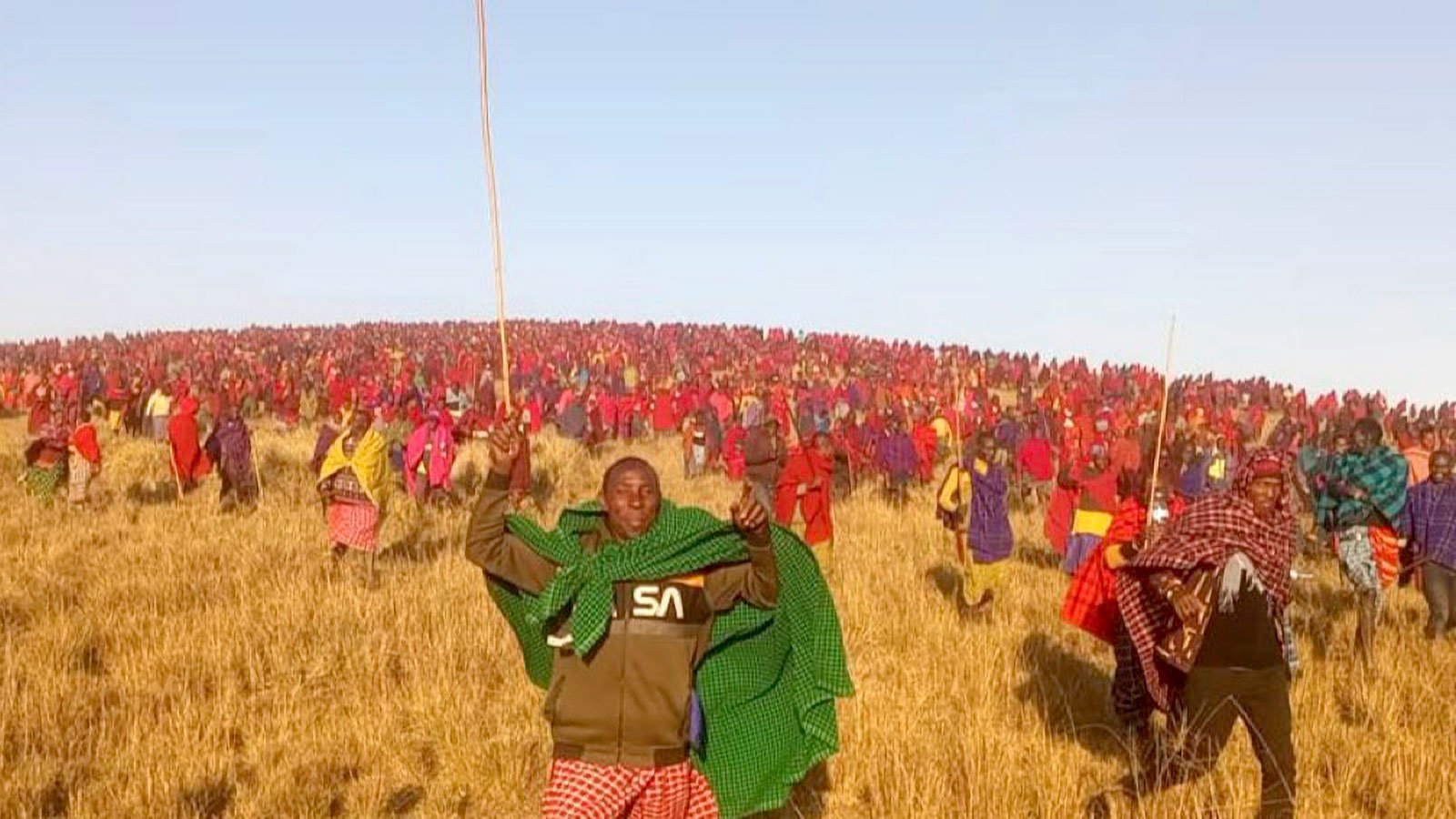
The Oakland Institute has previously shattered state propaganda regarding a better life waiting for those who “volunteer” to resettle in Msomera, documenting how the site – 600 km away – lacks adequate water resources and grazing land while promises of improved social and health services by the government remain unfulfilled.
The NCA was established in 1959 as a multiple land use area that explicitly recognized the Maasai’s settlement rights and authority in governance decisions, while accommodating conservation and tourism. The Maasai were even promised that “should there be any conflict between the interests of the game [animals] and the human inhabitants, those of the latter must take precedence.” It is time that the Tanzanian government keeps its word.
As the environmental stewards of the area, it is imperative that the land rights of the Maasai are restored in compliance with national and international law. The Oakland Institute reiterates the calls made by international law experts to the Presidential Commissions:
- Recognize and protect Maasai land rights, in line with international standards.
- Affirm the role of Indigenous knowledge in conservation, with a focus on Indigenous women and girls.
- Guarantee Free, Prior, and Informed Consent (FPIC) before any conservation initiatives are launched.
- Support sustainable livelihoods rooted in Maasai knowledge, culture, and environmental stewardship.
- Establish ongoing, transparent dialogue between Maasai communities and authorities.
- Promote community-led education and knowledge sharing on conservation.
- Implement U.N. recommendations on halting forced relocations and upholding human rights.
Source: oaklandinstitute.org
Related posts:
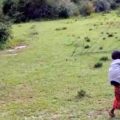
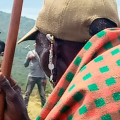 Call to Sever Ties with Tanzanian Government Over Latest Human Rights Abuses Against the Maasai
Call to Sever Ties with Tanzanian Government Over Latest Human Rights Abuses Against the Maasai
 Justice Denied: East African Court of Justice Grants Tanzanian Government Impunity to Trample Human Rights of the Maasai
Justice Denied: East African Court of Justice Grants Tanzanian Government Impunity to Trample Human Rights of the Maasai
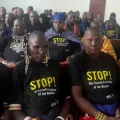 Tanzanian High Court Tramples Rights of Indigenous Maasai Pastoralists to Boost Tourism Revenues
Tanzanian High Court Tramples Rights of Indigenous Maasai Pastoralists to Boost Tourism Revenues

12 anti-Eacop activists decry delayed justice after spending 100 days on remand

‘They Stole Our Ancestors’: Ministry of Water, RDCs Accused of Land Grabbing and Grave Exhumation in Kanungu

Failed US-Brokered “Peace” Deal Was Never About Peace in DRC

Know Your Land rights and environmental protection laws: a case of a refreshed radio program transferring legal knowledge to local and indigenous communities to protect their land and the environment at Witness Radio.

Uganda is on a mission to plant over 40 million trees by October 3, 2025, a crucial step in combating the alarming decline in its forest cover.

The 4th African Forum on Business and Human Rights: The rapidly escalating investment in Africa is urgently eroding environmental conservation and disregarding the dignity, the land, and human rights of the African people.

Oil palm tree growing in Uganda: The National Oil Palm Project is threatening to evict hundreds of smallholder farmers to expand its operations.

The 4th African Forum on Business and Human Rights: The African continent is lagging, with only a few member states having adopted the National Action Plan (NAP) on Business and Human Rights.

Innovative Finance from Canada projects positive impact on local communities.
Over 5000 Indigenous Communities evicted in Kiryandongo District
Petition To Land Inquiry Commission Over Human Rights In Kiryandongo District
Invisible victims of Uganda Land Grabs
Resource Center
- REPARATORY AND CLIMATE JUSTICE MUST BE AT THE CORE OF COP30, SAY GLOBAL LEADERS AND MOVEMENTS
- LAND GRABS AT GUNPOINT REPORT IN KIRYANDONGO DISTRICT
- THOSE OIL LIARS! THEY DESTROYED MY BUSINESS!
- RESEARCH BRIEF -TOURISM POTENTIAL OF GREATER MASAKA -MARCH 2025
- The Mouila Declaration of the Informal Alliance against the Expansion of Industrial Monocultures
- FORCED LAND EVICTIONS IN UGANDA TRENDS RIGHTS OF DEFENDERS IMPACT AND CALL FOR ACTION
- 12 KEY DEMANDS FROM CSOS TO WORLD LEADERS AT THE OPENING OF COP16 IN SAUDI ARABIA
- PRESENDIANTIAL DIRECTIVE BANNING ALL LAND EVICTIONS IN UGANDA
Legal Framework
READ BY CATEGORY
Newsletter
Trending
-
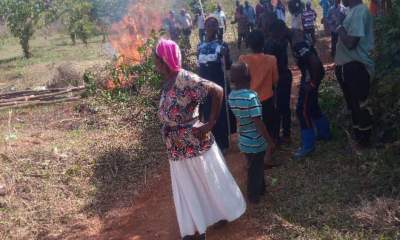
 MEDIA FOR CHANGE NETWORK1 week ago
MEDIA FOR CHANGE NETWORK1 week agoOil palm tree growing in Uganda: The National Oil Palm Project is threatening to evict hundreds of smallholder farmers to expand its operations.
-
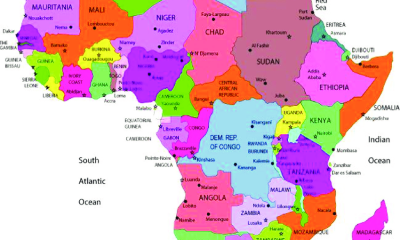
 MEDIA FOR CHANGE NETWORK2 weeks ago
MEDIA FOR CHANGE NETWORK2 weeks agoThe 4th African Forum on Business and Human Rights: The African continent is lagging, with only a few member states having adopted the National Action Plan (NAP) on Business and Human Rights.
-
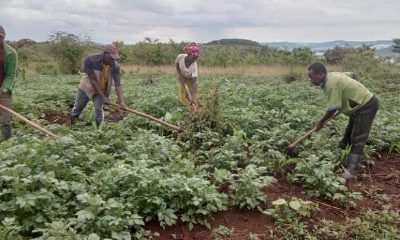
 MEDIA FOR CHANGE NETWORK2 weeks ago
MEDIA FOR CHANGE NETWORK2 weeks agoThe EAC Seed and Plant Varieties Bill 2025 targets organic seeds, aiming to replace them with modified seeds, say smallholder farmers.
-
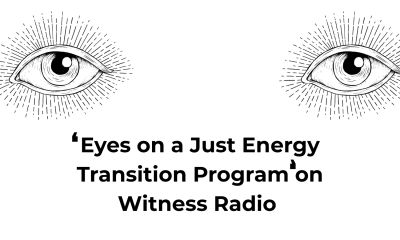
 MEDIA FOR CHANGE NETWORK1 week ago
MEDIA FOR CHANGE NETWORK1 week agoNew! The Eyes on a Just Energy Transition in Africa Program is now live on Witness Radio.
-

 MEDIA FOR CHANGE NETWORK3 days ago
MEDIA FOR CHANGE NETWORK3 days agoKnow Your Land rights and environmental protection laws: a case of a refreshed radio program transferring legal knowledge to local and indigenous communities to protect their land and the environment at Witness Radio.
-
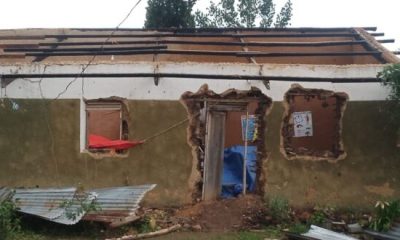
 MEDIA FOR CHANGE NETWORK1 week ago
MEDIA FOR CHANGE NETWORK1 week agoRDCs, Local Leaders Accused of Grabbing 70-Acre Ancestral Land
-
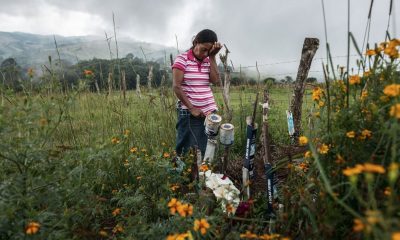
 NGO WORK2 weeks ago
NGO WORK2 weeks agoDocumenting killings and disappearances of land and environmental defenders
-
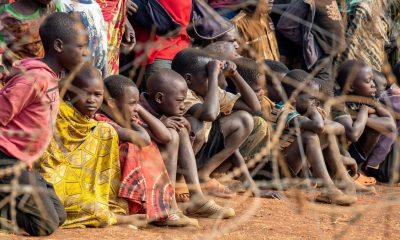
 NGO WORK2 days ago
NGO WORK2 days agoFailed US-Brokered “Peace” Deal Was Never About Peace in DRC

